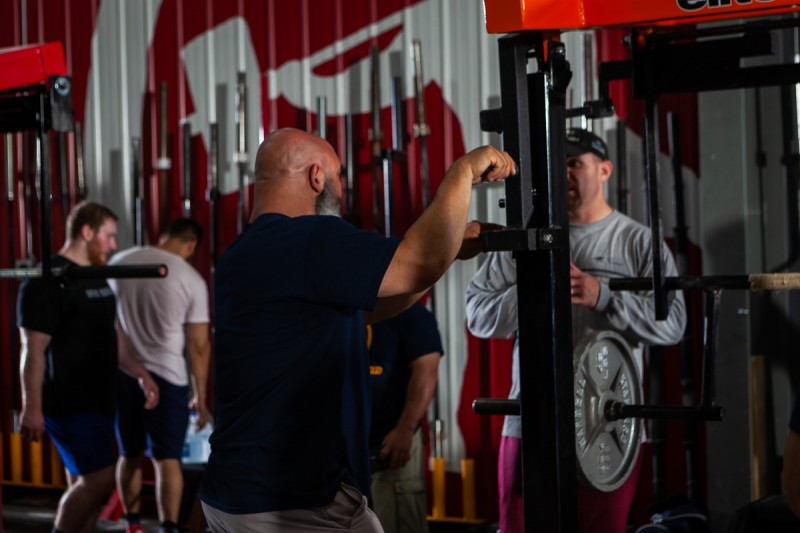
After these past few scandals in college football, I had an interesting question brought up to me by some strength coaches I know. They asked me in the end, where do our loyalties lie? They brought up various scenarios that happen to all of us at one time or another in this profession. Who are we truly accountable to? It is not an easy question to answer. In a perfect world, we would be accountable to the athletic director. These professionals hire us, keep tabs on us, and perform our performance reviews, and we adjust to what they see to try to make the program better. We answer only to them; as long as we are doing everything right, the athletes are receiving safe and proper training protocols, and we are not breaking any rules, we are good to go.
As stated above, only in a perfect world. This takes a program with an athletic director who actually knows what we do and has tremendous character to stand up to coaches who need to blame someone for a bad season. This is why trainers never get fired and never get let go when there is a whole regime change. I have been a part of one regime change where everyone was let go, all the way to the secretaries, but not the trainer. Why? Because these individuals answer directly to the athletic director. The athletic director trusts them to do what they do and to take care of business. Why do we not have the same luxury? I will admit that some of it is our fault because of our unprofessionalism and lack of common sense, and some of it is the people to whom we are answering.
RECENT: 3 Reminders for a Healthy and Productive Training Camp
Let’s say you are the director of strength and conditioning, or sport performance, or whatever title sounds good this week, and you are in charge of all 400 athletes in your school. You and your assistants divvy up teams, workouts, schedules, practice, weight room times, and on and on. In the end, YOU are responsible for everything that goes on in your realm, YOU have to answer for all of the good and the bad, and YOU fix problems and create solutions. Then, a new football coach is hired, increases your workload, and thinks you answer only to him, not to the athletic director or any other team. So, you “work” together for a few years and the team does badly, and he has to do something to make it look as though he is doing something. Heaven forbid, it can’t be his schemes or all of the busts he has had in recruiting, right? It can’t be his fault. So, he blames the low guy on the totem pole—us—because we are the cheapest and easiest to get rid of. I am going to be honest: deep down inside, most coaches think strength coaches are a dime a dozen. How many times have you heard, “Oh, he’s big; let’s put him in the weight room” or “He’s from a great program; he must be good.” And don’t forget the classic, “That guy is intense—look at how he yells and jumps around. Let’s hire him.” It doesn’t matter that he can’t put two sentences together, but man can he jump around on game day and bench 405. So, he goes to the athletic director and says he wants you fired. No rhyme or reason, just “needs to make a change.” What does he do?
Is he going to fire his long-lasting employee who has nothing but great reviews from all other coaches (including the athletic director), great exit interviews from athletes, and the respect of all of the people with whom he works—trainers, equipment, compliance, etc? Or is he going to tell the football coach with three million dollars left on his contract, “No, I’m going to keep him?” In real life, what would you do? If he is a coward, he will fire you. A year later, he will fire that same coach who brought in his own guy to help him to win. I have seen it both ways. We had a coach leave for a bigger job, and our athletic director came down and told me that if the new football coach wanted me, I was good, but if he did not and instead wanted his own guy for football, he would keep me as the head, and this guy would be in charge of football. Trust me, working for him was a perfect world. This is what should happen.
Listen, I get it. I understand and have no problem with strength coaches who are tied to one sport and one sport only, like football. Your loyalty lies to him. You are the director of football strength and conditioning, tied hand in hand with the head football coach. In this position, you are a lot more involved with the team, and you usually have a lot of say in what goes on. You pretty much answer to him and him only. If the team does well, you do well. If the head coach gets axed, you go with him. This is as close as you can get to the perfect scenario. Fair as fair can be. When the team is successful, you are rewarded. If the team does badly, see you later. Fair enough. Loyalty lies and dies with that coach. If you think that all of this is muddy, try being an assistant who does a great job. Not only does your boss love you but also the head football coach has taken notice of the great job you are doing with his kids. He begins to ask you things he used to ask your boss, and the staff even starts to hang out with you. Some great coaches are on the staff, and one of them will probably be a head coach soon, saying he will hire you once he gets a job. Where do your loyalties lie now? You love your boss and have all of the respect in the world for him. You want to be a head guy someday, but you’re not sure how to go about it. You know that your boss notices these things but says nothing. It’s a bad situation to be in for doing a great job, right? There is only one way: you have to go to your boss and tell him, “You are my boss; I am not doing anything behind your back. I want to be a head guy someday, but I can’t control when these guys come down and talk to me or give me more responsibility. Just tell me what you want me to do and I’ll do it.” That will cover your loyalty to him, and if he is loyal to you, he will find a way to help you to make it work. If he is not loyal to you, then these things are happening because they all see that he is loyal only to himself and not others.
These are only a few of the situations you will face, and unfortunately, there’s not one perfect answer. After I’ve done this for 21 years, the best advice I could give to you is to be loyal to the job. Just do your best day in and day out, and let the chips fall where they may. People you think you can trust you may not be able to trust, and those you didn’t think you could trust could get you the job of your dreams. Keep your nose to the grindstone, keep working and learning, and sooner or later, the cream always rises to the top.











